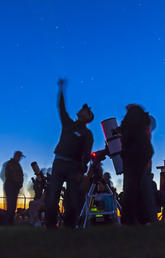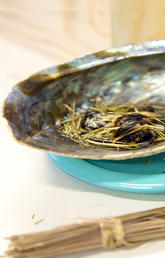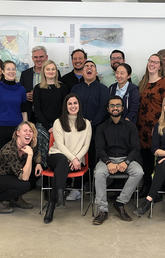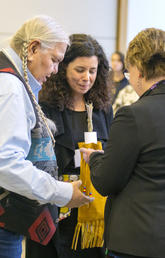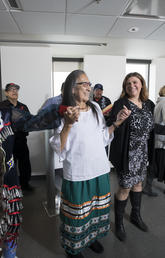June 12, 2020
UCalgary honours National Indigenous Peoples Day with virtual Campfire Chats
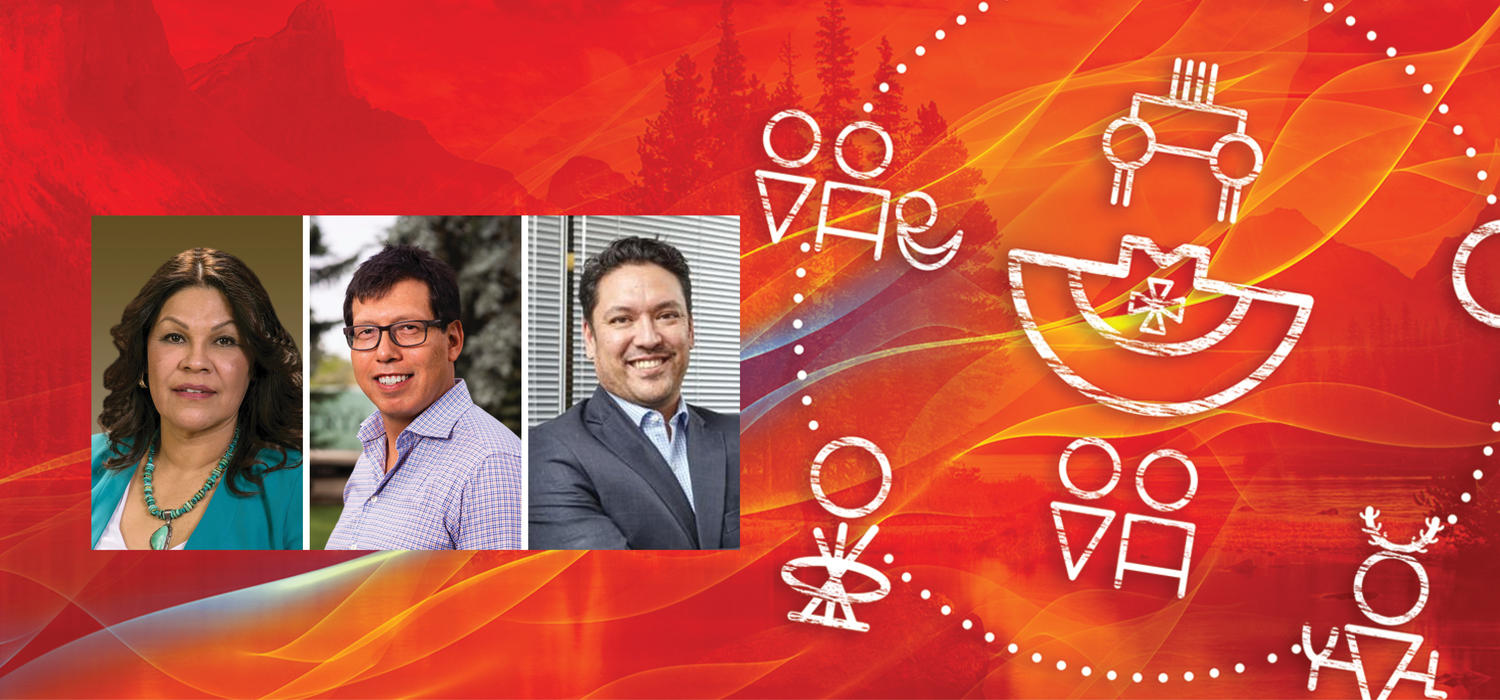
Since the University of Calgary’s annual Campfire Chats event first launched in 2015, it has celebrated National Indigenous Peoples Day by bringing audiences together on the land we share, around a campfire, with traditional storytelling. This year, with COVID-19 restrictions in place, the conversation is moving online, but the foundation of sharing stories and connecting with one another will remain.
The one-hour webinar on June 19, moderated by Chancellor Deborah Yedlin, will unpack Indigenous resilience through hardship, and how we can use Indigenous ways of knowing to move forward during this uncertain time.
“This is an excellent opportunity to showcase some of the leaders who are working on the front lines of the pandemic in Indigenous communities in Alberta,” says Michael Hart, vice-provost (Indigenous engagement).
While First Nations, Métis and Inuit communities face unique challenges, they also bring incredible resilience and important perspectives to the local and national conversation that must be heard.
Dr. Reg Crowshoe, UCalgary’s Elder in Residence, will lead Campfire Chats with an opening prayer and close the conversation with grounding remarks. During the discussion, participants will hear from three expert panelists: Marlene Poitras, Alberta Regional Chief, Assembly of First Nations; the Cumming School of Medicine’s Dr. Lindsay Crowshoe, MD; and Ryan Robb, CEO of the Stoney Nakoda Tribal Administration.
An opportunity for growth during hardship
For Poitras, returning to ‘normal’ post-COVID should not be the goal for Indigenous communities. “’Normal’ has meant underfunding communities, exploitation of our lands and our communities without consent or involvement of First Nations leaders,” she says. Poitras sees an opportunity now and after the crisis to work together with the government to make things better for communities and ensure First Nations and their people can thrive.
Opportunity is top of mind for Crowshoe. He explains that the possibility of primary health care delivered virtually has been accelerated in response to public health orders for physical isolation. “Indigenous people experience access barriers to health care,” he says.
“The reasons are complex, related to system and structural issues. But because of the crisis, clinics have incorporated virtual care approaches, and telephone and video appointments are now happening, so more people are receiving the care they require. Sustaining this shift will be critical.”
The Stoney Nakoda First Nations communities comprising the Chiniki, Bearspaw and Wesley Nations have been the hardest hit in the Treaty 7 region, with 19 cases of COVID-19 — all have recovered. Ryan Robb is a key player in co-ordinating crisis responses in the community. “When I came into my role as CEO of the Stoney Nakoda Tribal Administration, I wanted to use the best practices that I learned though industry and apply them to the community,” he explains.
“With the COVID-19 situation, and with all challenges, our goal is to bring both Indigenous and western ways of knowing together, with a focus on the similarities rather than the differences.”
Join us for Campfire Chats June 19
Hear more from the three speakers as they explore the social and political nuances within Indigenous communities during COVID-19 and beyond, and how Indigenous resilience can help everyone navigate uncertain times. The event will feature a live Q -and-A where audience members can contribute to the conversation, as well as grounding remarks from Dr. Reg Crowshoe.
June 19, 2 to 3 p.m. on Zoom. Learn more and register here.
Leading up to the event, learn more about Indigenous perspectives on pandemics with Dr. Crowshoe in ii’ taa’poh’to’p’s Elders Wisdom Series.

